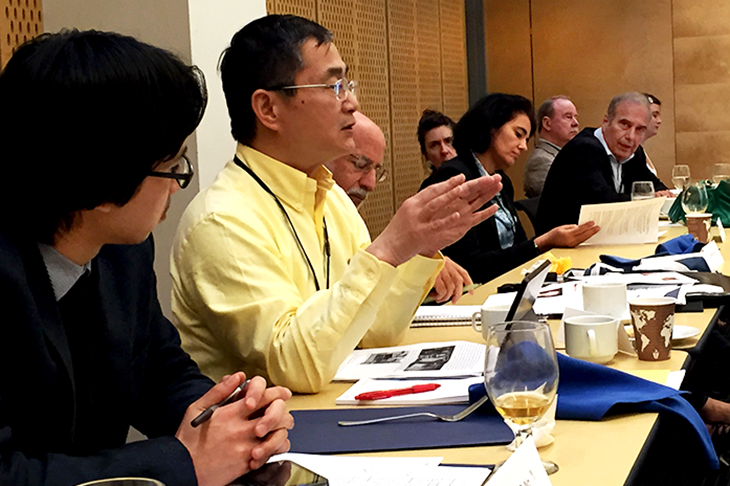Tulane conference draws top scholars on China and Cuba

Yinghong Cheng, professor of history at Delaware State University, talks on “Between Capitalism and Socialism: Chinese-Cubans 1959-2000s” at the Tulane conference on “Chinaâ“Cuba: Trajectories of Post-Revolutionary Governance” that was held on the uptown campus on April 17 and 18. (Photo by Zhu Zhang)
China and Cuba survived the fall of communism in the last decade of the 20th century by employing different strategies economic reform in China and nationalism in Cuba. Experts on China and Cuba gathered on the Tulane University campus last weekend for a first-of-its-kind conference comparing the paths China and Cuba have traveled since revolutions brought communism to each country.
“This is really a fascinating comparison,” says conference organizer Martin Dimitrov, associate professor of political science and director of the Asian Studies Program.
The conference, “Chinaâ“Cuba: Trajectories of Post-Revolutionary Governance,” was notable because it brought together top American Sinologists and Cubanists and also attracted scholars from China and Cuba.
Tulane is the ideal location for the conference “given our strengths in Latin America in general and Cuba in particular,” Dimitrov says.
Ludovico Feoli, director of the Center for Inter-American Policy and Research (CIPR), says the conference"s central question what scholars focusing on China and Cuba can learn from each other in comparing the two countries" post-authoritarian trajectories has not been addressed before.
“This comes at a time when Cuba confronts a generational shift in leadership and the thawing of relations with the U.S., and China confronts the challenges of slowing economic growth and vast environmental pollution,” Feoli says. “So how each manages pressures for reform is interesting in its own right, but also informative from a comparative perspective.”
In addition to CIPR, support for the conference came from several Tulane units: the Cuban and Caribbean Studies Institute, the Roger Thayer Stone Center for Latin American Studies, the Office of Academic Affairs and Provost, the New Orleans Center for the Gulf South, the Dunbar Fund in the Department of Political Science and the Asian Studies Program.
Mary Sparacello is a communications specialist in the Office of Development Communications.
“It was a very productive exchange over those two days.”—Martin Dimitrov, director of the Tulane Asian Studies Program
